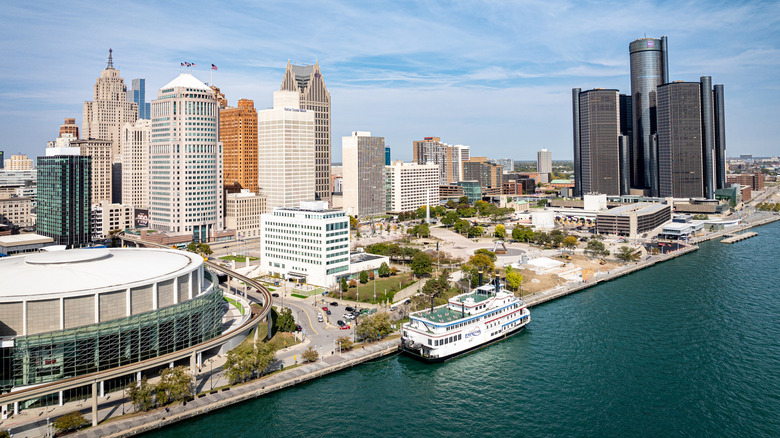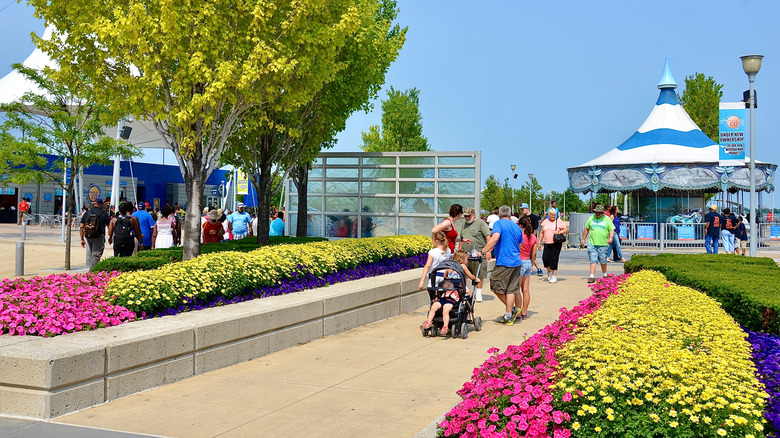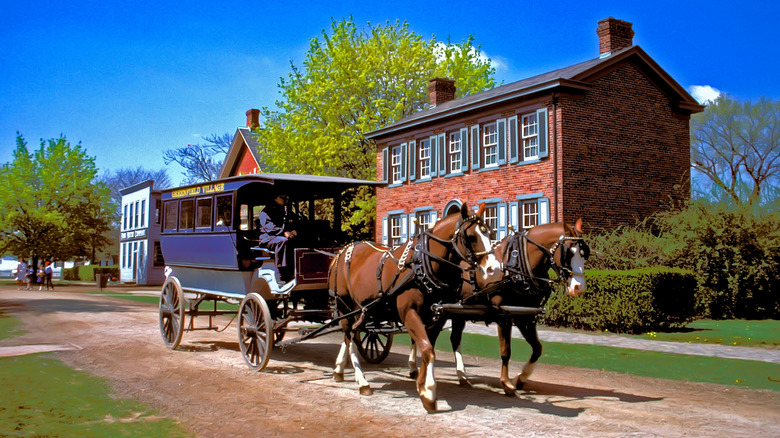America's Best City For Accessible Travel Is This Revitalized Midwest Gem With Inclusive Trails And Attractions
When researching the best ways to plan your dream vacation with mobility issues and needs in mind, consider Detroit. The city is emerging as one of the most accessible travel destinations in the country, especially for those using wheelchairs. Wander, a platform for luxury accommodations and travel experiences, ranked the city as its top accessible destination, awarding it an impressive 9.7 out of 10. The rankings highlighted Detroit's perfect record on ADA compliance for public rail stations, with every station accessible. The city also stood out for its transit coverage, with about 5.53 transit stops per 100,000 people.
For national parks, there are plenty of hiking trails in America for wheelchair users. But in terms of urban hiking and accessible trails, Detroit has plenty to offer. Outdoor enthusiasts will appreciate that nearly two-thirds — or 61.54% — of Detroit's trails are wheelchair-accessible, making the city a top location for inclusive outdoor recreation.
To get here, you can arrive by flight at the fully-accessible Detroit Metro Airport, located about 25 minutes east of Ann Arbor. To reach Detroit, take the Detroit Air Xpress, a shuttle bus that connects the airport to the downtown area. Another option is to ride Amtrak's accessible train service to the downtown station. Once you're in the city, visit the wheelchair-friendly attractions that are barrier-free, like the Detroit Institute of Arts and the Eastern Market.
Discover inclusive, paved trails along Detroit's waterfront
To get acquainted with the city, visit the Detroit Riverwalk, a fully paved path stretching about 3.5 miles. The wide promenade offers sweeping river views, including the Detroit skyline and the opposite shore of Windsor, Canada. Along the way, you'll pass sculptures, manicured grounds of the Riverwalk Garden rooms, lush parks, and inviting public spaces. Cullen Plaza includes a carousel that highlights local wildlife, as well as mythical figures such as a river mermaid and river monster.
Right outside of Detroit is Michigan's bustling island, another gem worthy of a stop. Belle Isle Park, located across from Gabriel Richard Park, is designed with accessibility in mind. Circling the park, Belle Isle loop is a fully paved pathway rated as a gentle-grade trail around the state park island. The park is home to the Belle Isle Aquarium, the oldest public aquarium in the country; the Dossin Great Lakes Museum, which is full of maritime history; and the free-to-enter Belle Isle Nature Center. The island is 2.5 miles long, and across its 982 acres, you'll find fishing piers, kayak launches, and a playground — all designed to be accessible to all.
To visit one of the country's oldest outdoor farmers markets, check out Detroit's Eastern Market held on weekends and on Tuesdays from June to September. The open-air gathering has been operating since the 1840s and is connected by the Dequindre Cut Greenway. Take the 20-foot-wide paved pathway to see graffiti art and murals, and stop by the Freight Yard — made out of shipping containers — which features a wine and beer garden, food trucks, and entertainment. For another wheelchair-accessible waterfront trail, head north to the heart of Michigan's Upper Peninsula, where a city on the lake's shoreline offers boardwalk bliss and charm.
Experience art and history at inclusive museums in Detroit
The Detroit Institute of Arts is one of Detroit's finest attractions and is fully equipped to welcome everyone. It boasts more than 65,000 works of art, so plan to spend a few hours to fully enjoy everything. Its famous pieces include the first Van Gogh painting in an American museum and Diego Rivera's "Detroit Industry" murals. This building is spacious and easy to navigate. Visitors using wheelchairs will find the museum's wide aisles and accessible restrooms accommodating. Adaptive options are also available, like audio guides and ASL-interpreted tours.
Just a few blocks away, the Charles H. Wright Museum of African American History offers a similarly immersive and inclusive experience. Its permanent exhibit, "Still We Rise," is a powerful collection tracing the history of the African diaspora through the Civil Rights Movement and beyond. The space is accessible to all guests, with ramps, elevators, and ample room to explore.
Another Detroit favorite for accessible travel is the Henry Ford Museum of American Innovation and the Greenfield Village. The massive 250-acre museum complex features historic exhibits, most of which are barrier-free within the main building. Some of the structures in the historic replica village are also mobility-friendly, including the Weiser Railroad ride, which has a wheelchair lift that can accommodate up to 500 pounds. You can also see the inner workings of a real factory and more at the Ford Rouge Factory Tour, which is fully ADA-compliant and easy to navigate.


